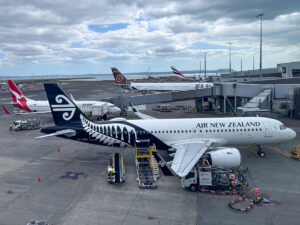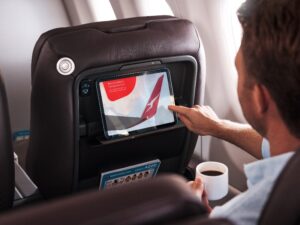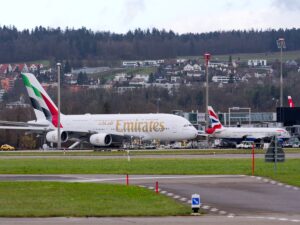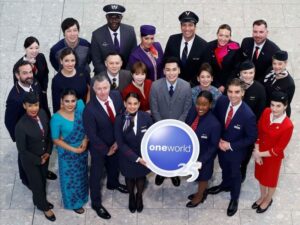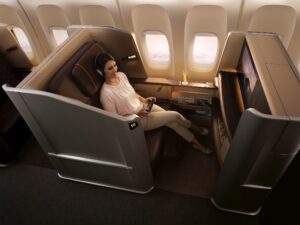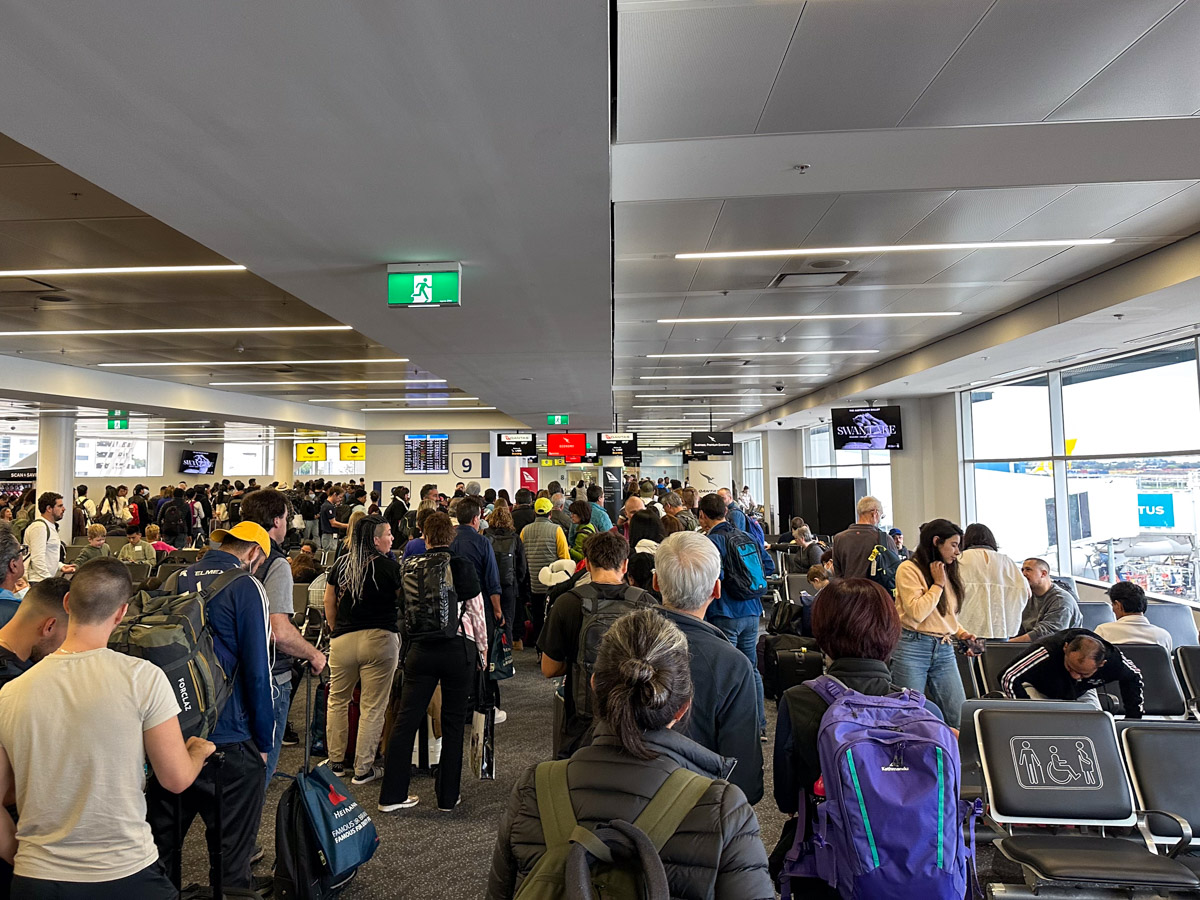
Access to staff travel is one of the biggest perks of working for an airline. With access to Industry Discount (ID) tickets, airline employees can fly for just a fraction of the normal ticket price.
Despite this, many airline employees still choose to buy full-priced tickets (or redeem frequent flyer points for confirmed reward seats). The reason for this is that most airlines sell discounted staff travel tickets on a standby basis. So, there’s always a risk of getting bumped off the flight if it’s full.
This article explains how airline staff travel works in general, including the benefits and risks involved. However, as every airline has different staff travel policies, we won’t cover specific airline procedures in detail.
Contents
The different types of staff travel flight tickets
Airlines may offer several different types of tickets for staff travel:
- Duty travel is when airline employees need to position to another airport as part of their job, for example, to operate another flight or attend a training session. Duty travel tickets are typically confirmed seats. The airline covers the cost because the staff member is travelling for work, even though they are not working as a crew member on that flight. Many airlines do not allow employees on duty travel to consume alcohol.
- ID90 tickets are standby tickets that employees can book for leisure travel. They give a 90% discount off the regular base fare, although the employee still needs to cover any third-party taxes.
- Some airlines allow employees to book confirmed seats for leisure travel at staff travel rates, but may restrict this to one trip per year (and/or offer this only to employees who have been with the company for a certain number of years). These tickets might be sold at a lower discount, e.g. 50% or 80% off the base fare.
Sharing staff travel benefits with family and friends
Many airlines allow staff to take family and friends with them when flying on standby tickets.
Some also let their staff to book discounted standby tickets for friends or family, subject to certain conditions. This is sometimes known as flying on a “buddy pass” or “companion pass”.

Airlines may limit the number of people each employee can pass on their staff travel benefits to, and these people must be known to the employee. The airline employee needs to make any bookings themself.
Obviously, airline employees are not allowed to sell standby tickets for a profit. It could also reflect very badly on the employee if somebody travelling on the employee’s buddy pass doesn’t follow the rules or is abusive to airport staff. If any of these things happen, the employee lose their ID travel benefits or even face dismissal. So, employees need to be careful with who they offer their staff travel benefits to. Equally, their companions need to understand and follow the rules.
Which airlines and cabins can you use staff travel benefits on?
At a minimum, employees can usually access staff travel benefits on their own airline. This could also extend to other airlines that are part of the same “group”. For example, Jetstar and Qantas employees and their nominated companions can access staff travel on both Qantas and Jetstar, including Jetstar Asia.
These benefits also extend to other airlines that their employer has negotiated a reciprocal partnership with. In general, airline staff can access standby tickets on many of the same airlines that the airline has frequent flyer partnerships with, including Oneworld, Star Alliance or SkyTeam partners – and often even more, in fact.
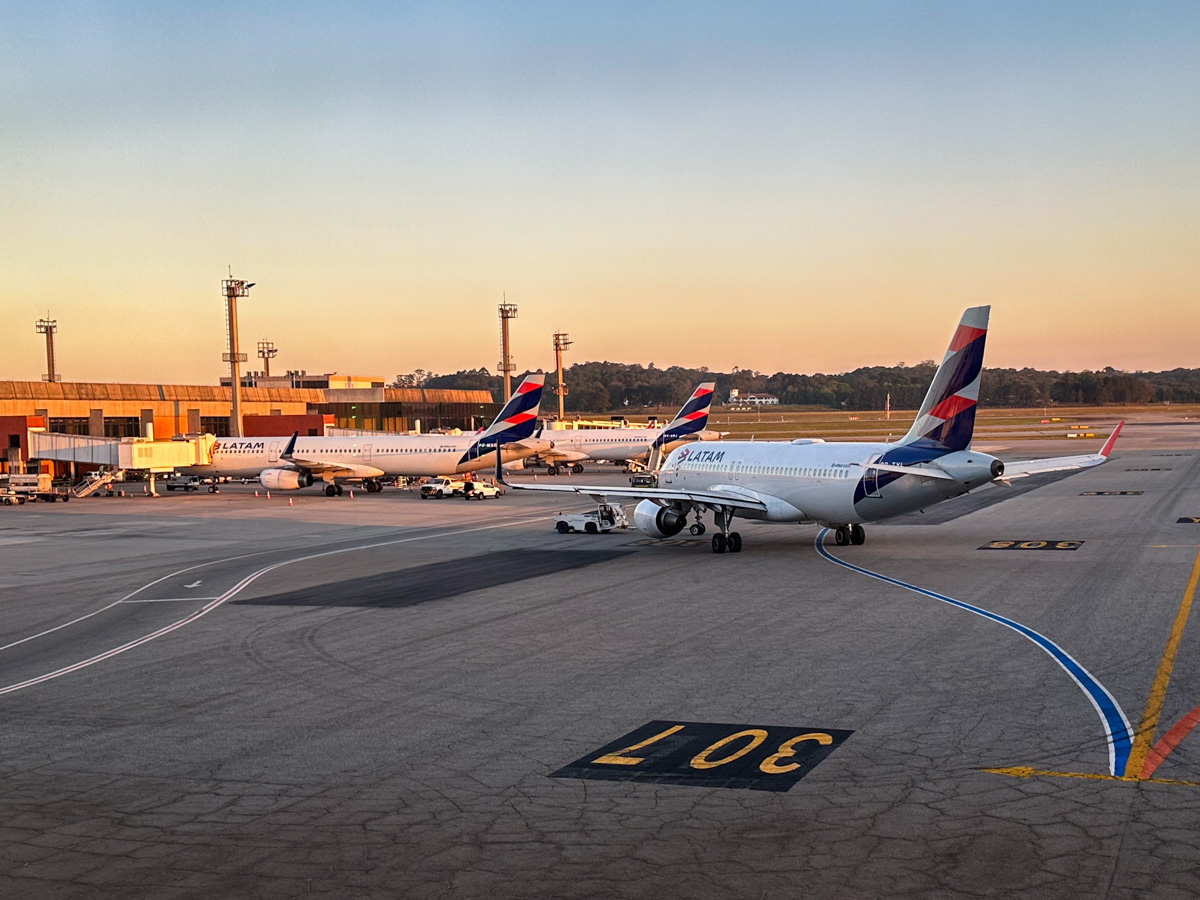
On the other hand, somebody travelling on a “buddy pass” gifted by a friend or family member cannot typically access standby travel on other airlines. This benefit is reserved for the employee and any people travelling with them on the same flight.
Each airline has its own policies regarding which cabin class you can book on standby. This could also depend on your seniority within the company. For example, Qantas staff can’t book ID tickets for Premium Economy. Many airlines also restrict access to First Class seats on leisure standby tickets.
There is a dress code
Most airlines require their staff to adhere to a dress code when using their discounted travel benefits or flying on duty travel. However, the requirements vary considerably between different airlines. At a minimum, most airlines ask their staff to avoid wearing gym clothes, sandals or anything that might be considered offensive.
The rules may be more strict when flying in a higher cabin class. Some airlines require staff travelling in premium cabins to wear smart attire and nice shoes, for example.
Ultimately, access to staff travel is a privilege and the airline can choose to enforce any standards it feels are appropriate.
The benefits of flying on staff travel
The main benefit of booking staff travel tickets is obvious: You get to fly for a significantly reduced price. If it’s available, you might even be able to fly in Business Class for less than the normal cost of an Economy airfare.
Another key benefit of staff travel is that you get a lot of flexibility. The airfare is exactly the same, whether you book three months or three hours before the flight is scheduled to depart. In fact, you can even get a full refund if you no-show for a flight you’ve booked.
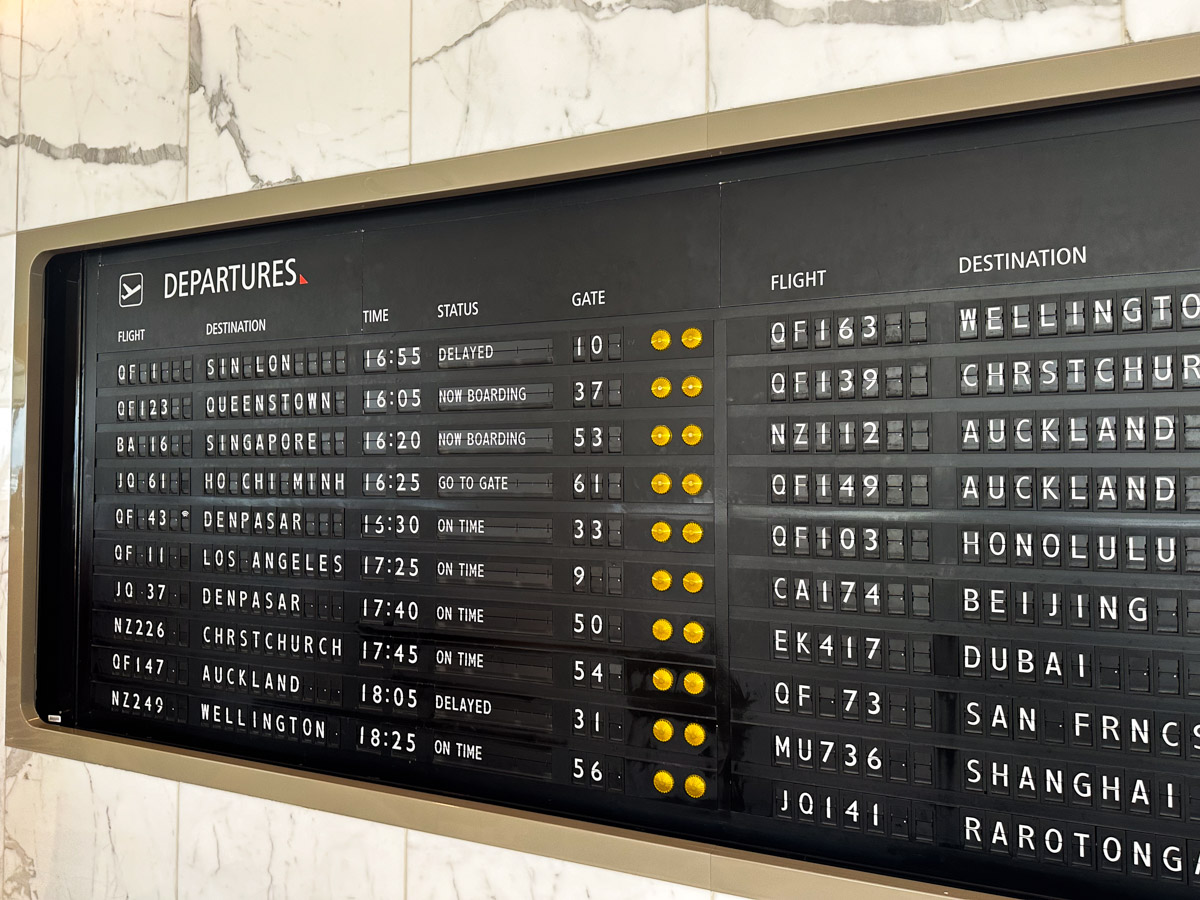
The disadvantages of using staff travel
Unfortunately for airline staff, that flexibility works both ways. When flying standby, you also need to be flexible as you’ll only get on the plane if there’s a seat available.
In fact, if you want to fly on a busy route during a peak period, there’s a high likelihood that you won’t get on the flight at all. This is more of an issue with long-haul flights than on short-haul routes with regular frequencies.
There is always a risk that you may get bumped off a flight or downgraded, even after boarding. And there’s a chance that there might not be a seat on another flight for days.
Other disadvantages of flying on staff travel include:
- You don’t generally get to choose your seat
- You won’t earn any frequent flyer points or status credits
- On some airlines, you might get served your meal last or be given the last choice
- If there are no passenger seats left on the plane, you might end up in a jump seat
- If your flight gets cancelled, you have no rights to hotel accommodation, rebooking or compensation, etc.
- You cannot generally use the airline’s lounge, even if booked in Business or you have status (there are some exceptions, e.g. Virgin Australia Lounge members and Velocity Gold & Platinum members can use VA lounges when flying Virgin on staff travel)

Standby travel can be very unpredictable
Airline employees generally get access to an internal portal where they can check the number of passengers booked and standing by for each flight. This information can be really useful when deciding which flight/s to try to get on. But even the best laid plans can come unstuck if there are unexpected disruptions on the day of travel – which regularly does happen in aviation.
For example, you might have a standby ticket on a flight with 100 empty seats. It seems like a sure bet, but then another airline cancels their flight on the same route and rebooks 100 of its passengers onto the flight you were trying to get on. Suddenly, the flight has no seats left.
This can also work in reverse. You might be trying to get on a flight that’s oversold, and suddenly extra seats become available at the last minute because some passengers from a delayed connecting flight don’t show up, or get denied boarding for whatever reason… to give just two of many possible examples.
Booking standby flights can be particularly risky if you need to get back home by a certain time. Even if you work for the airline, getting bumped off a standby flight on the last day of your booked leave is not an acceptable excuse for failing to turn up to work the next day. So, you need to take the risks into account and have backup options.
Great Credit Cards for Earning Qantas Points
- Card Name
- Qantas American Express Ultimate
- Earn
- 1.25
- Signup Bonus
-
50,000 bonus Qantas Points¹
Apply by 1st Jul 2025
- Annual Fee
- $450 p.a.
- Read more
- View Offer
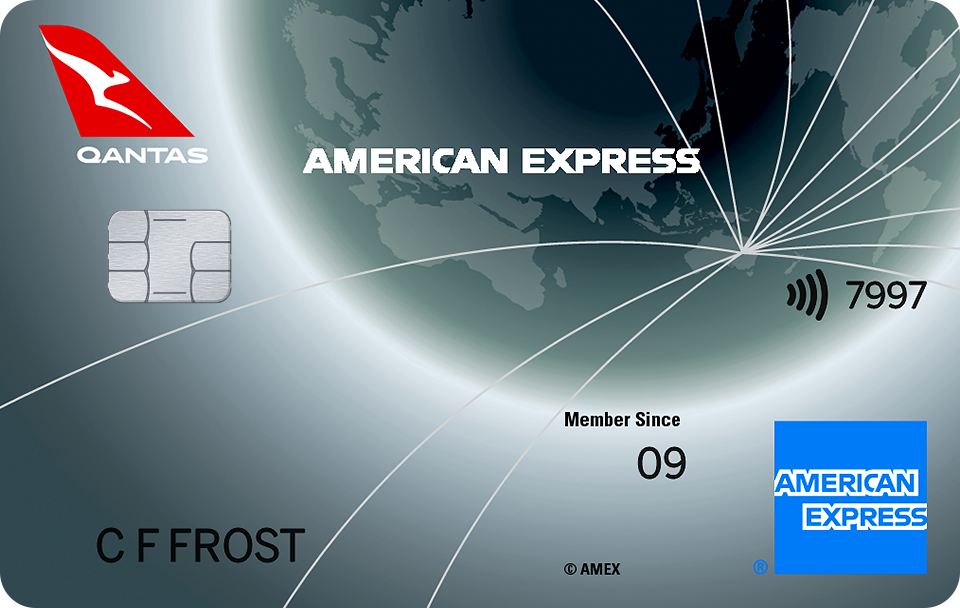
on everyday purchases
- Card Name
- Qantas Premier Platinum
- Earn
- 1
- Signup Bonus
-
Up to 90,000 bonus Qantas Points*
- Annual Fee
- $349 for the first year and $399 p.a. ongoing
- Read more
- View Offer
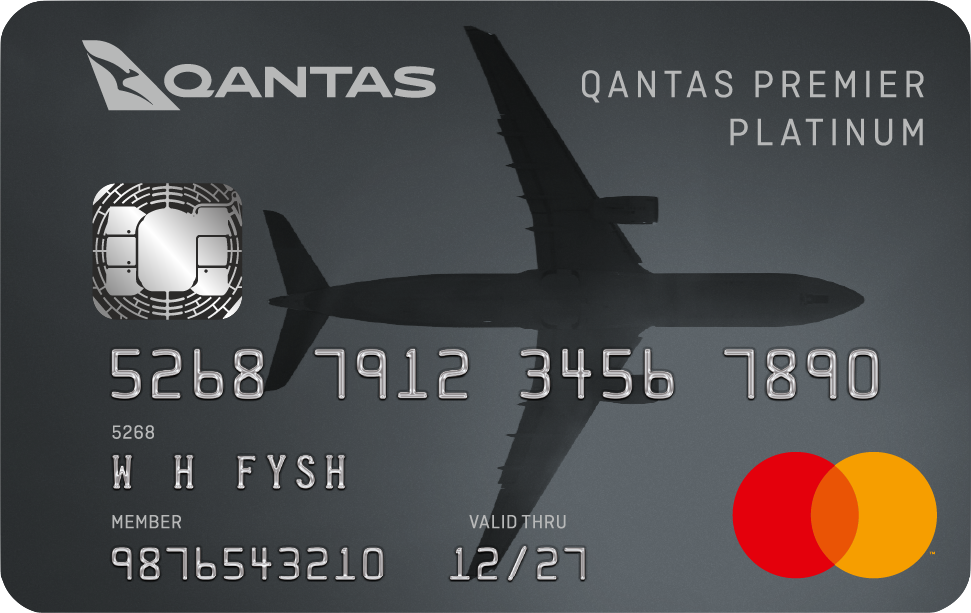
on everyday purchases
Checking loads
While airline staff can usually check the predicted passenger load numbers for flights on their own airline, this does not extend to partner airlines.
For example, a Virgin Australia crew member could use ID travel to book a standby ticket on Qatar Airways. But they would have just as much information about the expected loads as any other member of the public.
To get around this, many people use an app called StaffTraveler. Verified airline employees can request load information for another airline’s flight through this app, and get credits when they help staff of other airlines to find the same information.
How priority works on the standby list
On any given flight, there could be multiple staff with standby bookings. Sometimes, there are more staff trying to get on than there are seats available.
In this case, priority is based on the type of ticket and the employee’s seniority. In general, the higher your position within the company and the longer you’ve worked there, the higher you are on the standby list.
Of course, paying customers always have priority over staff on standby tickets for leisure travel. This includes on the upgrade queue for any available seats in the premium cabins.
It may be a different story for airline staff on duty travel. For example, some Qantas pilots are entitled to Business Class when “deadheading”, even if this means bumping a paying customer with a confirmed Business Class booking.

How is your experience on staff travel?
The Australian Frequent Flyer forum has threads discussing staff travel on both Qantas and Virgin Australia. You can read about peoples’ experiences and share your own stories here:
